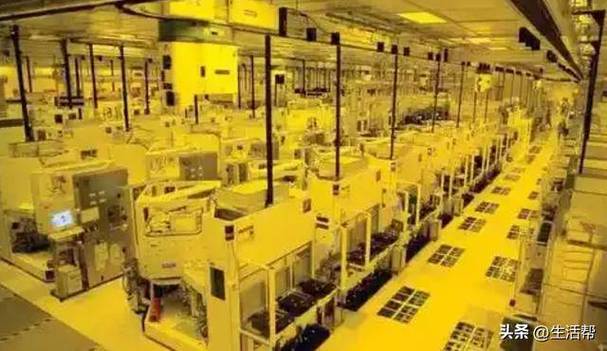
TSMC’s US 2024 also officially went into production, following the start of mass production at its first Japanese fab at the end of the year.
According to a report by the Taiwanese“United Daily News” on January 12, United States Department of Commerce Remondo recently told the British Reuters news agency that, tSMC has in recent weeks begun manufacturing advanced 4NM chips for US customers at its Arizona plant. It is the first time in U. S. history that advanced 4-nanometer chips have been manufactured domestically by U. S. labor, with yields and quality comparable to Taiwan, she said.
TSMC agreed last April to increase its planned investment by $25 billion to $65 billion and build a third wafer fabrication plant in Arizona by 2030, Reuters said. In November, the United States Department of Commerce finalised a $6.6 bn grant to help TSMC’s US unit produce chips in Phoenix, Arizona. Remondo has said he wants the US to produce 20 per cent of the world’s advanced chips by 2030, compared with zero before TSMC’s Arizona plant starts production. She also said the United States Department of Commerce had to persuade TSMC to expand its investment plans in the US, “[ increased investment by TSMC ] doesn’t happen [ automatically ] . . . we have to convince TSMC that they want to expand [ in the US ] .”. Reuters called it an important milestone in President Biden’s push for semiconductors. TSMC will produce the world’s leading 2NM process technology at its second plant in Arizona, which is expected to be 2028. TSMC also agreed to use state-of-the-art A16 chip manufacturing technology in Arizona.
In response to the upcoming inauguration of U.S. president-elect Donald Trump, Taiwanese“Economy minister” Guo Zhihui said on the 10th that TSMC set up factories in the U.S. because the U.S. industry wanted it to go. As far as TSMC is concerned, to set up factories in the United States can also serve customers nearby. As for TSMC advanced process to set up more urgent progress in the United States, Guo said, “Although to invest in the United States to set up factories is close to the customer, but I believe TSMC will carefully assess.”. He also said that in the past, Taiwan required a manufacturing gap of more than two generations to invest overseas, but now the technology is so far behind that“Manufacturers need to be able to make money”. “This means that the Ministry of Economic Affairs is giving the green light for TSMC to invest in the U.S. ,” Taiwan’s economic daily said Tuesday. “TSMC is solely at its discretion.”.
On the 16th of this month, TSMC will hold its first speech of 2025, chaired by chairman Wei Zhe-jia. In addition to reviewing the 2024’s achievements, more important is to release the operating outlook for the New Year. According to the report, some foreign investors have a conservative view of TSMC in the first quarter of 2025, believing that the US sanctions ban needs to be taken into account, especially the impact of extending the ban to 16 nanometers on revenue.
TSMC did not comment on the Reuters report. T?mori noted that TSMC sent more than 1,000 skilled workers from the island after it started building plants in the US, prompting a backlash from the Arizona Union. However, according to foreign media reports, although about 50% of TSMC’s U. S. plant staff from Taiwan, but with the passage of time, this situation will change. The New York Times also recently revealed that TSMC expects the proportion of U.S. workers to continue to grow over the next 5 years as more factories are built.
Lai Shyh-bao, a KMT“Legislator”, said he would probably face Donald Trump’s removal of subsidies or heavy taxes in the future, and even ASK TSMC to set up more advanced manufacturing plants in the US. It is worth paying attention to whether TSMC will be hollowed out and its industry hollowed out. It will by no means have little impact on TSMC as Guo said. An earlier commentary in the China Times said that Taiwan’s TSMC was worried about whether its move would lead to an outflow of key technology, as well as a continued tug-of-war between China and the US over chips. Critics say TSMC is“De-taiwanizing” and that although the chipmakers are still based in Taiwan, many of the decisions it makes are beyond the island’s control.